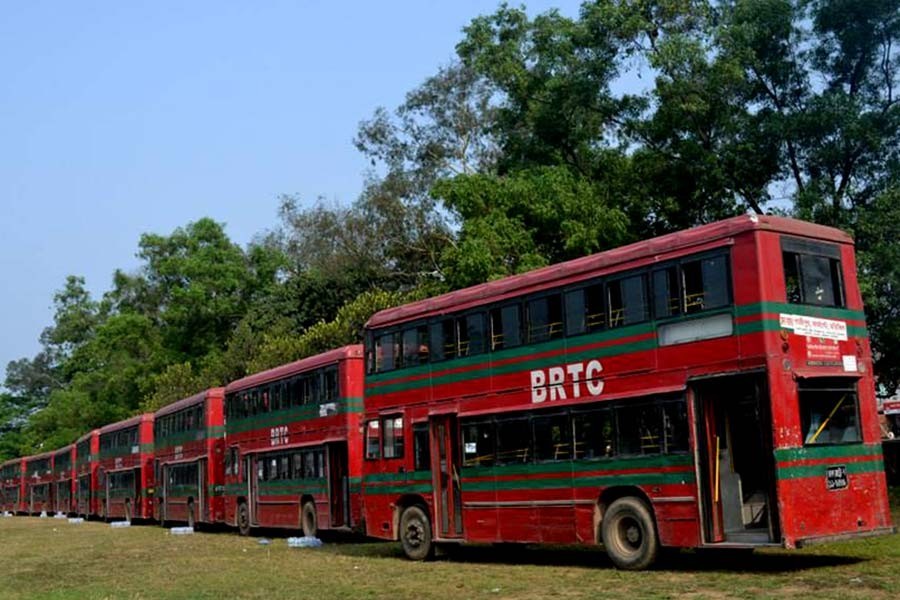More than two decades later, the Bangladesh Road Transport Corporation (BRTC) has re-launched double-decker bus service on Dhaka-Narayanganj route. With 75 seating capacity in each bus, the non-Air Conditioned (AC) service brings a relief for the regular passengers. The reduced fare, Tk 30 instead of Tk 36 in regular private bus, and entirely gate-lock meaning no drop-off or pick-up passengers without any fixed but limited stops make the service quite popular.
To reintroduce the service, the BRTC has to make a number of compromises with the private bus owners and workers who always oppose such services. Double-decker BRTC buses have limited stops and there is no option to keep the doors open except at stops. Even, passengers are allowed to get down in some places where no local passengers are allowed to get in. Only two main private bus services, Utshab and Bandhan transports, have the right to drop off or pick up passengers anywhere they like. Contravening their stated nature of so-called express service, most of the time these two buses run like local service. Again, the number of double-decker buses is very limited. Only 20 buses are operating daily. There is also a time limit. For instance, double-decker is not allowed to start its day before 7.00am in the morning.
Interestingly, a private bus company owner is now behind the BRTC double-decker service. There is an arrangement between the BRTC and the private bus company owner to run the service. Earlier the owner tried to redesign his own private bus company by reducing fare and providing other facilities. But other owners and their loyalists resisted the move. Later he has made an arrangement with the BRTC.
No matter what the terms and conditions are, the arrangement is working smoothly for now as the service doesn't face any resistance. It appears that a new kind of private-public partnership (PPP) model has also been emerging through the process. To make the effort successful and sustainable, strong support from the administration is a must.
It is well known that private bus owners and operators have long vehemently resisted the operation of BRTC buses and forced to marginalise the services across the country. Due to strong political backing coupled with illegal extortion of money in the sector, private bus operators care little about rules and laws. They are neither providing optimal service to the millions of commuters, nor giving the state-owned entity to operate smoothly.
Against the backdrop, the current method of operating double-decker BRTC service in Dhaka-Narayanganj route may provide a test case for survival of the BRTC service in the long run. Private bus operators also need to understand the fact that better service and cooperation will help develop better business in the long run. A cut on the extortion, if not elimination, will be mutually beneficial.


